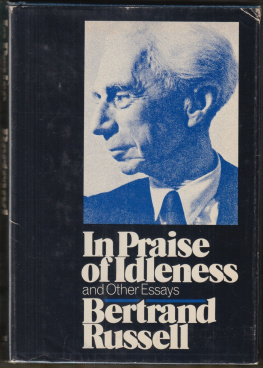A
JOURNEY TO THE MOON.
Ove mirabilmente era ridutto
Ci che si perde o per nostro difetto,
O per colpa di tempo o di fortna.
Ci che si perde qui l si raguna. Ariosto .
Je vous parle d'une des plus agrables folis de l'Arioste, et je suis sr que vous serez bien aise de la savoir. Fontenelle .
Amongst inquisitive persons there has always been a wish to know something about the moon, its surface, its inhabitants, and their manners; and several philosophers, to satisfy this curiosity, have, with much sagacity, construed its spots into mountains, volcanoes, and other commodities which a world is supposed to want. But these travels must be considered very imperfect; for by visiting a country through a telescope, but little is to be known of its people, their manner of living, their literature, their arts, or opinions. Accordingly, while that was the only way of travelling, we knew little more of the moon than that there was one.
Amongst the other speculations on this subject, many ingenious men exercised themselves in guessing what service the moon has to discharge for the earth, since it was generally agreed impossible that our satellite should revolve round us merely for its own advantage, though it might perhaps in some measure be consulting its private ends; and it was most commonly supposed to be transacting our business and its own at the same time.
First, then, it was supposed that the moon had been ordained with its mountains, valleys, and volcanoes, that it might give us light in the absence of the sun; and this was declared a powerful argument for the bounty of Providence, which did not forget us even in the night, when all other beings are asleep. But it was objected, that according to this, reasoning Providence is bountiful only during a part of the month; and that any argument in favour of Providence ought to last through the whole year.
To pass over all these uncertainties, I must remind my readers that our moon was at length proved to be the receptacle of every thing lost upon earth. This truth was the discovery of a great philosopher, and has nothing in it of theory or conjecture, but was attained by experiment and the strictest rules of induction. The knowledge of this must very much increase the interest with which we look at the moon; since every person has some loss to lament, and may gaze upon that heavenly body with a certainty that it contains what has been dear to him.
I had often wished that we could procure admission into the moon, in order to regain what had once belonged to us, and had amused myself with imagining the eager search that would take place; but without having the least suspicion that this could ever be really effected, since the want of air, and other conveniencies, is sufficient to discourage most travellers; besides which, the having no ground to tread upon must increase the difficulty of the journey. It cannot, therefore, be wondered, that in former times only one journey to the moon was known to have been accomplished, which is that related by Ariosto. But nothing seems too difficult for modern science; and it is well known that, by a most ingenious invention, we have lately been enabled to walk up into our satellite with safety. As I, amongst others, have accomplished this journey, I shall give a short narrative of my adventures, for the amusement of those who have been deterred by the distance from travelling in person.
The nature of this invention is so well known, that I need give no description of the journey. I saw great numbers travelling on the same expedition; some being led by curiosity, but most by a hope of retrieving the several losses that they had met with during life. I inquired of many, what prizes they hoped to recover. Some decayed people were going up in search of the health which they had once enjoyed; a woman with a melancholy look told me she had undertaken this journey with the hope of recovering her husband's good humour, which he had totally lost, to her great discomfort. There was a lady who refused to tell the motive of her journey, but it was whispered that she went to look for her character. Many old people were going to regain their youth. There seemed a great uncertainty as to the success of all these projects; for, first, it might be very difficult to find the lost advantages, and if they were found, none knew whether they could be used a second time: all, however, had great hopes; and I saw two or three men, who appeared incurably old, and were nevertheless convinced that, as soon as they arrived in the moon, they should revoke their wrinkles, and find some contrivance for not having lived the last fifty years.
As I approached the moon, I enjoyed the splendour of the sight. Its mountains far surpass ours in size; and in the shape of the surface there is a greatness not to be found in the noblest parts of our earth. I landed in the moon upon a plain, where I found grass and trees, the particular nature of which I shall not describe, as this short narrative is not intended to include botany and natural historysubjects which I leave to those who travelled into our satellite for the express purpose of studying them. I wish that my forbearance in this instance may be imitated by some of the more confined travellers on this earth, who, in the description of a country, thinking that no circumstance or production must be omitted, are very apt to give information on subjects of which they are profoundly ignorant. A traveller, who, in his own country, has not skill to distinguish one herb from another, is a sudden botanist on the other side of the globe, lest the book he is writing should be incomplete. Many of them involve themselves in shells, minerals, and other intricacies, on which they would not hazard a conjecture at home. He who is silent on any subject, leaves his knowledge in doubt; whereas, if he speaks, there can no longer be a question. Upon many productions of the moon, therefore, I shall avoid the indiscretion of being learned.
When I landed there, my attention was first engaged by a singular change in my sensations, through an increase of strength and activity. I had known that this change must take place, and had expected some amusement by observing it in my fellow travellers. As the weight of a body depends not on its own mass alone, but also on the force of attraction in the globe where it is placed, and as this attraction is in proportion to the mass of the globe, a man who goes out of our earth into the moon, which is much smaller, finds a great diminution of his weight. Still his muscular strength remains the same, so that he gains a great advantage in vigour and activity, and at the same time has a sensation of lightness not to be described. Though prepared for this, I could not immediately accommodate myself to the change. There was a small ditch in my way, and thinking to step over it, I sprung as far as a deer could leap. Nor could I at first regulate the effort of my muscles in walking, but every step was a great bound; and until I had had some experience, I was not able to walk with any moderation.

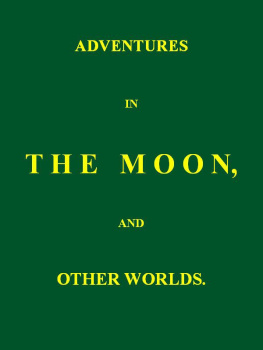


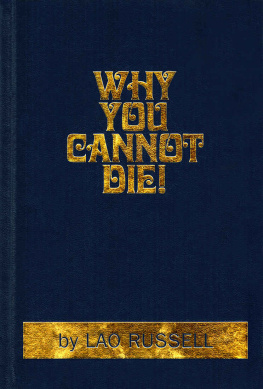

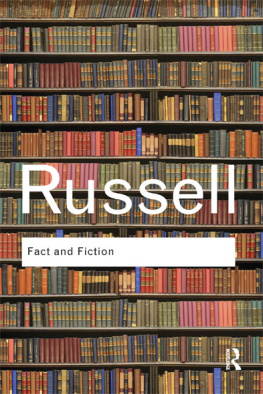
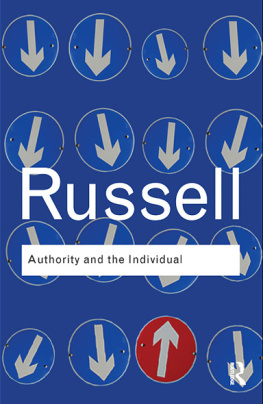


![Russell - On education [recurso electrónico]](/uploads/posts/book/137691/thumbs/russell-on-education-recurso-electro-nico.jpg)
